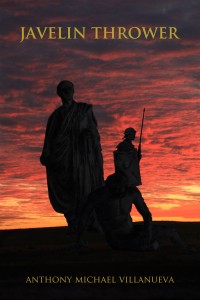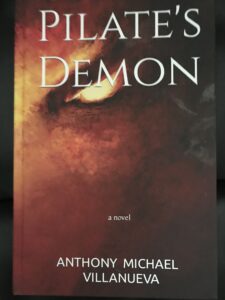The following short story placed third in “The Great War to End All Wars” literary competition (Monterey)
Fun and Games
We ran, dove for cover, crawled, shot and killed all morning. To our good fortune, our neighborhood provided the perfect battleground with vast plots of tall grass and mounds of soothing dirt for good cover. Kid-deep depressions in the earth made ideal foxholes for me and my brothers to hunker low and hear bullets whiz overhead. When we got hit, we gave our best performance of falling dead. If we didn’t like the first drop, we got up, took another hit and fell again until we got it right. A buddy would rush to our aid and yell, “Mac, Mac, you okay?” The guy hit always had the name “Mac.”
During a lull in the battle, we nestled in the trampled grass under a warm, comforting sun and debated seriously for minutes on end about which army we were going to fight when we grew up––the Germans or the Japanese. Without question, we would be fighting someone. The family’s history provided ample proof: our dad had fought the Germans, two uncles had fought the Japanese, and another uncle fought the Koreans. There would always be someone.
Our day-long battles slipped languorously into distant memories as we grew too old for such fun and games. The innocence of those make-believe fire-fights evaporated with time as the years marched on, taking us with them. That incorruptibility that had once been part of our youth would be replaced by the truths of real war. Truths like our father surviving a cold, bloody morning on June 6th, 1944 when water spray, wet sand, and body parts rained down on him while streaming bullets desperately searched for him. Fifteen days into being 19 years old he clambered ashore a beach designated as Omaha; at 6:45 in the morning the odds of there being day 16 seemed all too impossible. As a member of the 116th infantry he wore the blue and gray patch of the29th Army. Less than half of his unit made it past the bluffs and on to the roads leading into France; luckily, he had evaded Death’s clutches that morning, it already had its arms full of unlucky souls. The 116th would be less than half again by the time they reached Germany, and not all by enemy hands.
One of his brothers also deployed from a landing craft, but on the other side of the world, splashing into a different ocean––the Pacific. That brother would wear a mask of many a surgeon’s best attempt to make a new face; a Japanese hand grenade wiped away his handsome, original face. We used to scatter from him, like insects from under an upturned rock; as kids we didn’t know better. Nobody told us. Another brother survived unscathed and came home intact from New Guinea.
Years later yet another brother would go to war. He spent most of his war behind barbed wire as a POW, sometimes in a small box for stealing anything green to add to his rotten rice. Like my father and the other brothers, he didn’t speak of his war either, even though the Korean conflict wasn’t officially a war but rather a “police action.”
My brothers and I learned the ugly truths about war from our well-seasoned family experts by the time Viet Nam arrived on scene. As luck would have it, I got as far as Japan. The people I found there could not have been of the same people who had grotesquely disfigured my uncle. I prayed they wouldn’t see me as one of the same foreigners who had disfigured their people of Hiroshima.
One brother served in the Tonkin Gulf in a gun turret aboard a Navy cruiser, firing on an unseen enemy inland. A harness tethered another brother to a doorway in a helicopter gunship, his horrible gun turning other humans into red mists and flying body parts. His stories and his alcohol made for stinking, ugly company when he came home. The youngest brother served much later aboard ship in the Persian Gulf during the time of the USS Stark incident.
After my enlistment and some GI Bill education, I returned to active duty, but with bars and a bit more responsibility on my shoulders.
Those who send young men to war found other conflicts to be resolved. They gave them impressive names like Operation Just Cause and Desert Storm. They did it, I’m sure, just to give me the opportunity to hone my new acquired skills––combat casualty care, in the form of anesthesia. I assumed my new-found duties and rendered care to yet another generation of wounded warriors. The pride and excitement of it all waned as age tapped me on the shoulder to make me take a closer look––the wounded seemed all so young.
Those young kids made me think of my father-in-law who, as a medic, provided aid and care to wounded soldiers on that hellish nightmare of a beach, Omaha, that D-Day morning, 1944. He and my father didn’t know each other then. They were just two of the many thousands making history that day, each doing the job they were trained to do: one to kill; one to save; both to survive. Abel didn’t have to be there, he served a country that promised him citizenship if he would join battle for a cause. He could have gone to Mexico and sat it out; but he didn’t. He survived the war, but not his cancer.
When my brothers and I fought our pitch neighborhood battles as kids, we didn’t know that there had already been a great war to end all wars. Again, nobody told us. We were just carrying on the family tradition as we knew it.
Now, as veterans of childhood combat (and more), our aches and pains remind us we’re way too old for war games. My ailments are time-related. One brother’s maladies are Agent Orange related. The other brother . . . well, he no longer hurts; his alcohol did what a crashing helicopter couldn’t do. The youngest brother sailed the world and came home with fun stories––and silly tattoos.
On a day like today, when the trees are decorated in crisp reds, oranges and flashing yellows, the remnants of those childhood battles are but a daydream and deep sigh away. It was all fun and games, until––




